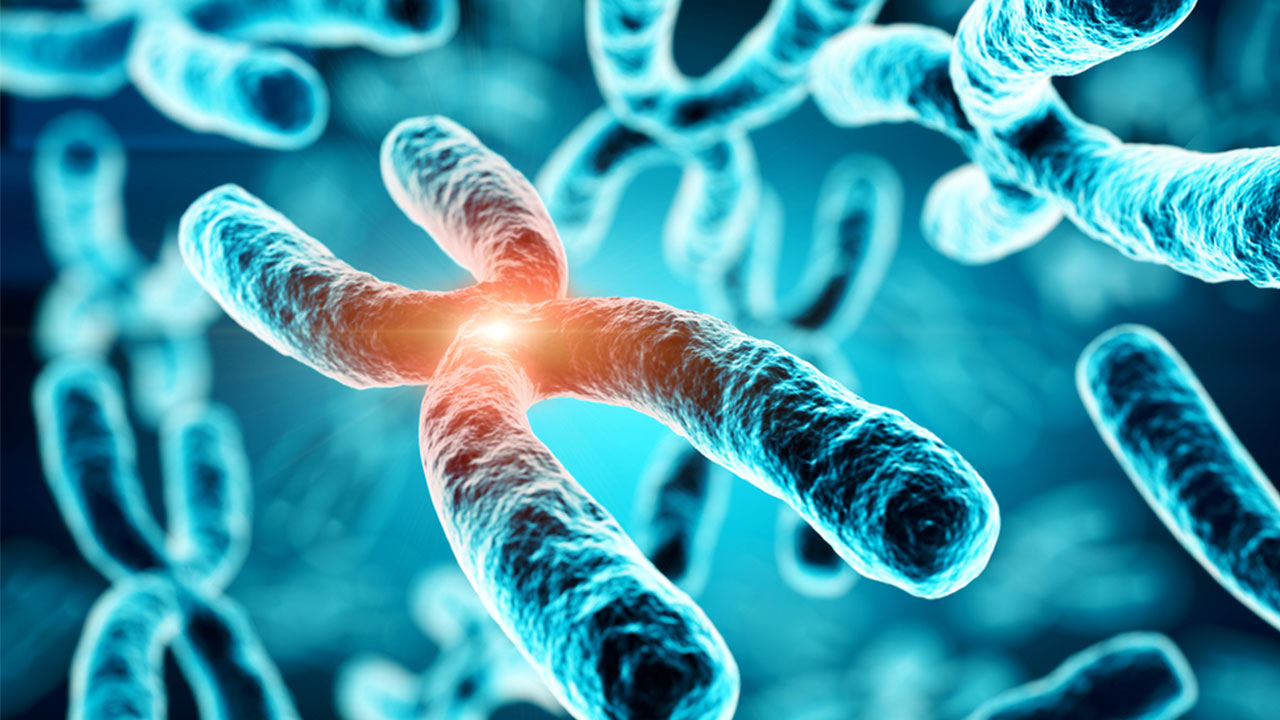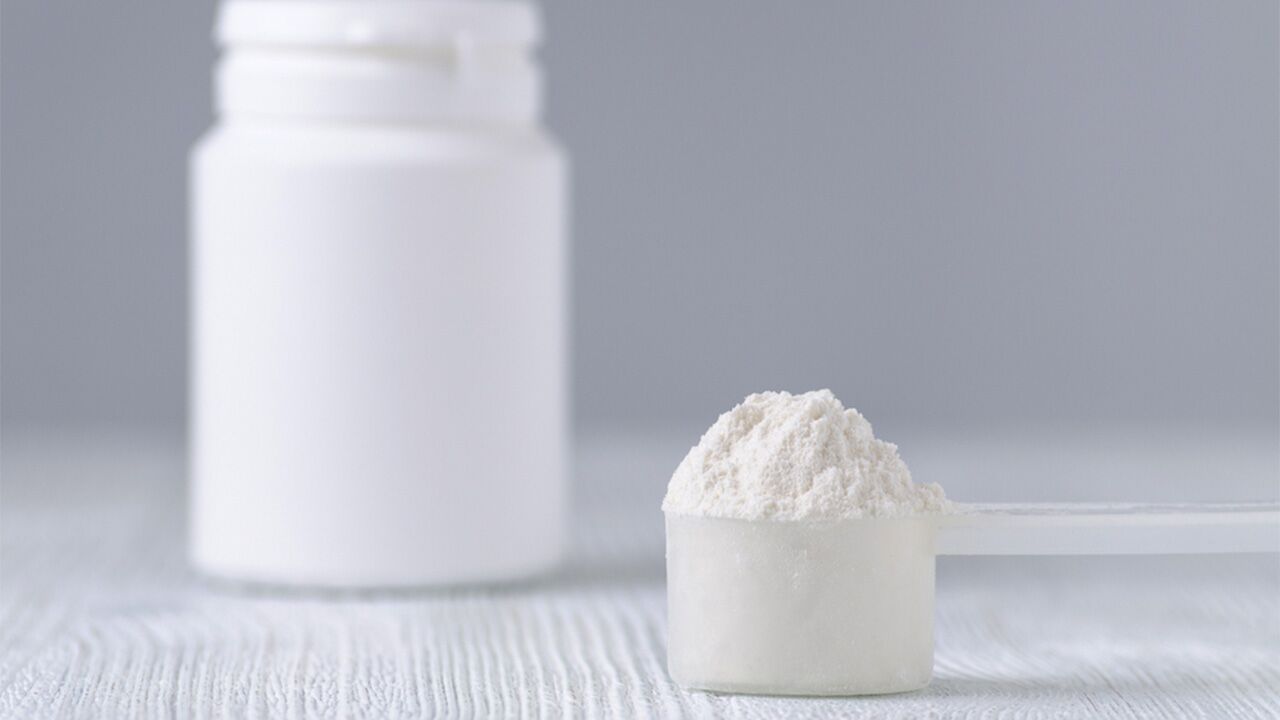Why You Need to Know About Epitalon
 By: by Amino Science
By: by Amino Science

Unless you have a scientific background, it's unlikely you would have heard of epitalon, sometimes referred to as epithalon, epithalone, epithalamin, or epithalamine. If the promise indicated by certain studies on its anti-aging properties prove to be true, however, this synthetic peptide may become a household name.
Research indicates that epitalon is a telomerase activator, meaning it can stimulate telomere elongation. Much of what we know about epitalon comes from the work of Dr. Vladimir Khavinson and other researchers at the St. Petersburg Institute of Bioregulation and Gerontology in Russia where it's being developed as an anti-aging drug.
In this article, we'll define what epitalon is and explore what scientists have discovered about its potential anti-aging benefits. But before delving into why scientists are so excited about the effect of epitalon on telomeres, let's cover some basics about telomeres themselves.
The Link Between Telomeres and Aging
Telomeres cap the ends of our chromosomes and protect our genetic code during cell division. Each chromosome contains the genetic information necessary to keep all the cells in our body healthy and functioning at peak capacity. During cell division, those genes must be copied exactly so that the newly created cells have that same essential information. However, the process of replication always leaves off a small section from the ends of the DNA strands. That's where telomeres come in. They're placed at the ends to ensure no vital data gets left behind. Therefore, each time a cell divides, the telomeres capping its chromosomes get shorter. This makes telomere length the limiting factor for cellular division: when they become too short, the cell they're attached to ceases to divide and enters senescence.
Studies indicate shortened telomeres may cause several adverse consequences of aging and age-related diseases, including increased oxidative stress, cancer, and overall mortality. Some experts have gone so far as to hypothesize that the shortening of telomeres may drive the entire aging process.
Understandably, this has drawn attention to telomere elongation as a possible method for preserving good health as we grow older. Stem cells—a subset of cells within the body with the ability to develop into different cell types (and in some instances, to repair injured tissues)—contain an enzyme called telomerase that keeps telomeres long, allowing those cells to replicate an infinite number of times.
Research indicates that providing the body with supplemental telomerase can indeed be an effective anti-aging treatment, however, it may have seriously deleterious side effects. That's because cancer cells, like stem cells, rely on telomerase to maintain a ceaseless rate of replication. Experts in the field of gerontology, the multidisciplinary study of aging and the problems that can accompany it, have raised concerns that the use of exogenous telomerase could spur the development of cancer.
Epitalon may offer a way to lengthen telomeres without the same risks associated with the use of supplemental telomerase.
What Is Epitalon?
The discovery of epitalon, a tetrapeptide with the amino acid sequence Ala-Glu-Asp-Gly, was a direct result of efforts to develop safe and effective methods for offsetting adverse effects of aging.
Scientists know that gene expression varies significantly with age, though there are numerous and conflicting explanations for why that might be. A simple and persuasive one goes like this: gene expression acts as a timer for the human life cycle. During our youth, we express genes that allow us to grow. During middle age, we express genes meant to keep us healthy. And when we reach old age, we begin to express genes that cause our cells to shut down.
Gene expression, on a cellular level, describes the translation of our DNA into proteins, the signaling mechanisms of the body. In the 1970s, Dr. Vladimir Anisimov, of the Department of Carcinogenesis and Oncogerontology, N.N. Petrov Research Institute of Oncology in St. Petersburg, and a frequent collaborator of Dr. Khavinson, began investigating the role of short peptides, which he ultimately learned function as epigenetic signals that both promote and repress the expression of whole categories of genes.
These short peptides, strings of fewer than 10 amino acids, can regulate the chemistry of the entire body. This capacity comes in part from the fact that their small size allows them to pass through the skin as well as through the blood-brain barrier. And unlike larger proteins, they tend to pass through the digestive tract intact.
In a review that synthesized a few decades of data, Anisimov shared the results of his investigation of the roles of small peptides isolated from different organs and tissues, such as the thymus gland and the pineal gland, on the mechanisms of aging. As part of his research, Anisimov also developed analogues of those peptide bioregulators, such as synthetic tetrapeptide epitalon.
The terms "epithalamin" and "epithalamine" typically refer to extracted peptide preparations, while "epitalon," "epithalon," and "epithalone" refer to synthetic peptide preparations. As epitalon has been shown to reproduce the effects of epithalamin, we will use that term throughout unless further specificity is required for clarity.
The long-term use of certain peptide preparations led to significantly increased longevity (mean lifespan increases between 20% and 40%) as well as a slower rate of age-associated alterations to biomarkers linked to physical and mental decline. Anisimov's work also showed lower rates of spontaneous tumor incidence in subjects who received epitalon treatment, indicating that it has anti-carcinogenic effects.
We'll dig into the specifics of some pioneering animal and human studies on epitalon in the following section, but first, let's discuss why Anismov focused on the thymus and pineal gland.
How the Thymus and Pineal Gland Affect Your Health
The main function of the thymus, a gland in the upper region of the chest, is to teach the immune cells to differentiate between invading pathogens and the cells of the body. As we age, the size of the thymus decreases, which some have suggested could be the root cause of age-related decreases to immune function, resulting in higher incidences of infections and autoimmune diseases.
In the 1980s, the Slavic researchers whom we have to thank for the bulk of our knowledge about short peptides were focused on the possibilities of a thymic peptide bioregulator called thymalin which they found could spur the thymus to re-grow, thus enhancing immune function. The use of thymalin also resulted in other desirable anti-aging benefits, such as:
- Decreased rates of hypertension and cardiovascular disease
- Better management of metabolism and body weight
- Improved endocrine health
- Reduced incidence of acute respiratory disease
- Lower rates of osteoarthritis and osteoporosis
- Rehabilitation of nervous system activity
Studies consistently linked thymalin treatment to decreased mortality rates too.
However, the heyday of thymalin was short-lived. In the early 1990s, researchers began focusing on the role the pineal gland plays in the aging process, specifically, its ability to modulate functions of the neuroendocrine and immune systems, which have been shown to decease with age.
Located in a region of the brain called the epithalamus, the pineal gland regulates the body's sleep/wake cycle, a crucial task that involves the secretion of a hormone called melatonin. A significant moment in the progression of research in this field occurred when researchers used syngeneic transplantation to place pineal glands from young mice into the thymus of older mice, resulting in a prolonged lifespan. Concurrently, researchers were examining the effects of various pineal peptides. One such compound, epithalamin, was found to be a complex peptide bioregulator that could reduce the rate of cellular aging, leading to increased longevity.
Epithalamin, like thymalin, is a short peptide composed of a string of four amino acids. However, studies showed that it could increase longevity more consistently than thymalin, that it suppressed cancer growth, and that it even had a more pronounced effect on thymic growth.
In the early 2000s, excitement about epitalon increased even more when scientists found it could activate telomerase, leading to the regrowth of telomeres. It has now become the most-studied short peptide.

Important Findings About the Benefits of Epitalon
The effects of epitalon have been examined in a variety of contexts: in vitro studies, animal studies, and human studies. Findings in all three realms have clearly and consistently indicated pronounced anti-aging benefits.
In Vitro Studies
The most significant work being done in vitro has to do with the effect of epitalon on telomerase activity. According to a 2003 study with Khavinson as the lead author, the addition of epitalon to a human somatic cell that did not naturally produce telomerase induced enzymatic telomerase activity, resulting in telomere elongation. They concluded that these findings indicate "the possibility of prolonging life span of a cell population and of the whole organism."
In 2016, a St. Petersburg-based research team found that epitalon produced telomere elongation significant enough to allow cells to exceed the Hayflick limit, which describes the typical lifespan for a human cell.
Animal Studies
In 1998, Anisimov and Khavinson collaborated on a study that, as described in an article published by the The Longevity Research Institute (LRI), examined the effect of epithalamin, a pineal peptide preparation, on the lifespan of fruit flies, mice, and rats. They found that epithalamin led to a median lifespan extension of between 14% and 32% longer than control subjects. Interestingly, they also found indications that epithalamin decreased cancer risk.
The LRI article cited above shares further key findings from other studies on epithalamin. Female rats between the ages of 16 and 18 months receiving daily doses of 0.1 milligrams of pineal peptide extract had a 10% longer lifespan than control subjects per a study published in Experimentelle Pathologie. When the dose was increased to 0.5 milligrams, the rats lived 25% longer than controls. Female mice given a 0.5-milligram dose of epithalamin daily lived 31% longer than controls and had 50% fewer tumors, according to another study Anisimov and Khavinson worked on.
In 2002, a team from the Department of Medical Biology and Genetics, I. P. Pavlov St. Petersburg State Medical University collaborated with Anisimov and Khavinson to examine the effects of epitalon on chromosome aberrations related to aging. They found that the incidence of such aberrations decreased by between 17.9% and 30% compared to age-matched controls. The team concluded that these results point to an "antimutagenic effect," which they hypothesize could be the source of epitalon's geroprotective abilities. It's worth noting, too, that the changes observed were consistent with increased telomere length.
Some skeptics have suggested that the lifespan extension benefits associated with various anti-aging treatments, such as epithalamin and epitalon, can more accurately be attributed to incidental food intake changes related to the way such treatments affect appetite. And indeed, fasting has been shown to have an impressive effect on lifespan.
In the case of epitalon specifically, studies with standardized food consumption have yielded the same findings related to longevity.
Take, for example a study published in Biogerontology in 2003. Anisimov, Khavinson, and a team of seven other researchers from the Department of Carcinogenesis and Oncogerontology at the NN Petrov Research Institute of Oncology in St. Petersburg looked at the effects of epitalon on body weight, food consumption, and lifespan in female Swiss SHR mice. The researchers subcutaneously injected the mice in the treatment group with 1.0 microgram/mouse of epitalon on 5 consecutive days each month. The control group received saline injections on the same schedule. The results showed a 12.3% extension of maximum lifespan in comparison to the control group with no changes to food consumption or body weight.
Epitalon has been linked to benefits that, while relevant to those interested in remaining healthy and vital while they age, can be quite valuable for individuals of all ages.
A study published in the Archives of Gerontology and Geriatrics in 2007 looked at the antioxidant properties of epitalon. The authors (Khavinson and two other Russian researchers) found that epitalon produced impressive antioxidant effects, and perhaps even more crucially, simultaneously stimulated the expression of additional antioxidant enzymes such as ceruloplasmin, glutathione peroxidase, glutathione-S-transferase, and superoxide dismutase (SOD). All in all, this translates to a major fortification of the body's antioxidant defense system.
Anisimov joined forces with a team of scientists from the Koret School of Veterinary Medicine at the Hebrew University of Jerusalem in Rehovot, Israel to examine the effect of epitalon on cancer growth. To do so, they injected 0.1-microgram doses of epitalon 5 times each week. They found this treatment decreased the number of malignant tumors and prevented the development of metastases. The long-term exposure to epitalon involved in the treatment protocol produced no adverse side effects.
Human Studies
Human studies have also yielded promising results. A randomized, controlled trial co-authored by Khavinson and a researcher named Vyacheslav G. Morozov and published in Neuroendocrinology Letters enrolled 94 women between the ages of 66 and 94, all of whom lived at the War Veterans Home in St. Petersburg. Participants were randomly assigned to one of four groups: the first received a placebo, the second a thymus extract called thymalin, the third epithalamin, and the fourth both thymalin and epithalamin.
Over the course of the 6-year study, 81.8% of the patients in the control group died, while only 41.7% of patients in the thymalin group and 45.8% of those in the epithalamin group, both of which received treatment for 2 years, died. And only a stunningly slight 20.0% of those in the group who received both epithalamin and thymalin for the full 6 years had died by the study's conclusion. Further, the authors noted that participants who received epithalamin had lower rates of ischemic heart disease as well as improved levels of key biomarkers such as cortisol and insulin.
In 2006, Khavinson collaborated with lead author O.V. Korkushko of the Institute of Gerontology at the Academy of Medical Sciences of Ukraine in Kiev on a randomized clinical study done with human subjects. They set out to examine the effect of "pineal gland peptide preparation"—epithalamin—on elderly patients with accelerated aging of the cardiovascular system, and found that long-term treatment with 50-milligram injections of epithalamin every 6 months for a duration of 12 years lead to decreased cardiovascular aging as well as decreased overall functional age. Epithalamin also improved participants' exercise tolerance. Furthermore, mortality in the group that received epithalamin was 28% lower than in the control group.
In a review titled "Peptides, Genome, and Aging," Khavinson states that treatment with both epitalon and epithalamin resulted in increased telomere lengths in the blood cells of patients between 60 and 65 years of age as well as 75 and 80 years of age. The efficacy of the two treatments proved to be equal.
As was the case for research done with animal subjects, human trials pointed to epitalon benefits desirable for individuals of all ages.
A 2011 collaboration between Korkushko, Khavinson, and two other researchers examined the effects of epitalon on elderly coronary patients. The team found that long-term treatment—meaning six courses over 3 years—resulted in numerous benefits, including:
- Slowed rate of cardiovascular aging
- Prevention of age-related declines to physical endurance
- Rebalanced melatonin production and circadian rhythm
- Normalized carbohydrate and fat metabolism
Patients also had lower rates of mortality than those in the control group who received basic therapy but no epitalon.
A 2013 study looked at the influence of epitalon on chromosome aberrations in pulmonary tuberculosis patients, as this disease is classified as one stemming from a genetic predisposition. Genome stability, or rather, instability, is one marker that can assist with the early detection of pulmonary tuberculosis. The researchers hoped that epitalon would have a corrective effect on the genome variability linked to the disease. Epitalon proved to have a potent protective effect—it reduced the frequency of aberrant cells for all subjects. However, it did not have a significant effect on chromosomal fragility that was already present.
Conclusion
The work of Dr. Vladimir Khavinson and other researchers, primarily based in Russia and Ukraine, indicate that epitalon has immense promise as an anti-aging drug. This promise has to do with epitalon's ability to influence gene expression, extend telomere length, and other exciting physiological effects that have what experts call "geroprotective" results.
Little research has yet been conducted on epitalon by researchers without ties to Russian institutions, so it may be too soon to make definitive statements about epitalon, but the findings so far certainly give a justification for further investigation.
There is an anti-aging formula that has demonstrated proven effects, and you can get it here today. Life enhances physical function and muscle strength, improves blood lipid profiles, and supports cardiovascular health.

Up to 25% off Amino
Shop NowTAGS: supplements
Join the Community
Comments (0)
Most Craveable Recipes




 833-264-6620
833-264-6620



















